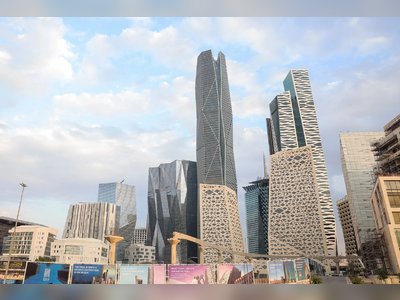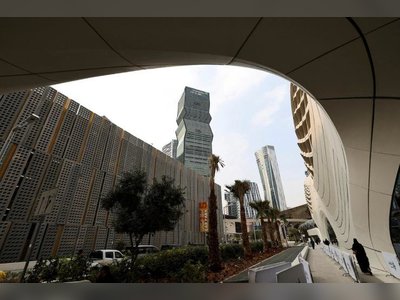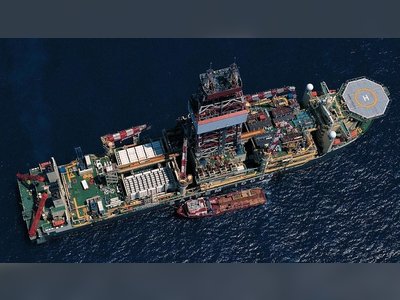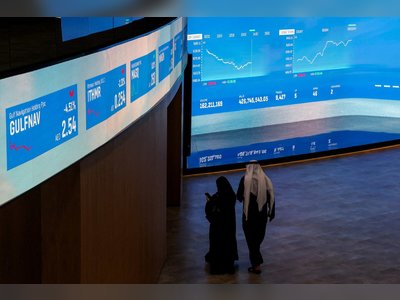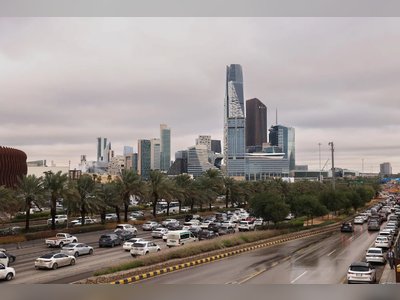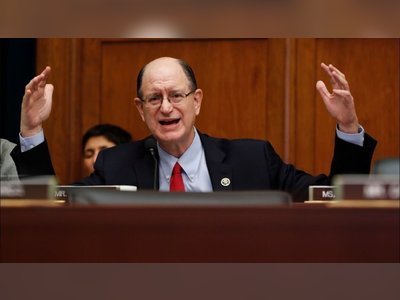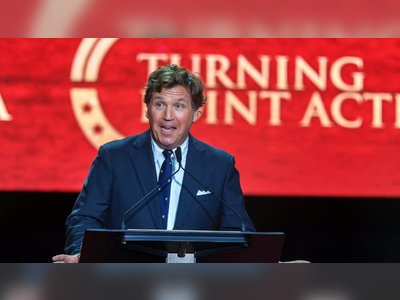
Iran's Nuclear Tactics Leaves Biden In Tough Spot
A flare-up in tensions between the UN nuclear monitor and Iran this week has left US President Joe Biden in an increasingly tight jam.
The US leader opened his presidency with a pledge to return to the 2015 international agreement that aimed to prevent Tehran from building nuclear weapons, after predecessor Donald Trump unilaterally withdrew from it.
Negotiations to restore that agreement have been at an impasse for three months over the very last details.
Without a deal -- and Iran ever closer to nuclear "breakout" -- Biden has a tough choice: to make more concessions to Tehran, and be accused of weakness by Republican opponents ahead of midterm elections, or declare the talks dead, which could spark a new Middle East crisis.
Rafael Grossi, head of the International Atomic Energy Agency, said Thursday that Tehran's removal this week of 27 cameras monitoring its nuclear sites could deal a "fatal blow" to negotiations.
"At this stage, things can go either way," said Ali Vaez of the International Crisis Group. "The tension of the past few days could potentially stir leadership in Tehran and Washington to take the deal that is on the table."
Or, he said, "It's the first step in another cycle of escalation, and from this point on it would only get worse."
"Worse" could mean Tehran moving ahead to build a nuclear weapon, and its opponents like Israel and US hardliners demanding hard action to prevent that.
Verge of a deal
The talks in Vienna between Iran and the major powers resumed last year at Biden's impetus, with the US willing to rescind sanctions in exchange for Tehran returning to full implementation of the 2015 Joint Comprehensive Plan of Action (JCPOA).
But at the edge of a deal three months ago, the talks stalled, due -- according to US officials -- to final demands by Iran unrelated to nuclear issues.
Meanwhile, officials say, Iran has pushed ahead with uranium enrichment operations that take it close to a weapons capability.
The situation deteriorated this week when members of the IAEA censured Iran for not cooperating. A day later Iran removed the 27 cameras.
Call for 'maximum pressure'
Supporters say the deal is the only thing that has prevented Iran from building nuclear weapons, and that saving it is worth Biden giving Tehran some concessions.
But opponents -- Republicans, and strong supporters of Iran's nemesis Israel -- say Iran's lack of cooperation shows the agreement is not worth pursuing.
If Tehran's accelerated uranium enrichment operations "are not sufficient to get the Biden administration to change course, what will?" asked Behnam Ben Taleblu of the Foundation for Defense of Democracies think-tank, which has opposed the JCPOA.
"The time has come for a multilateral version of maximum pressure," he said, referring to Trump's approach.
Even among Biden's Democratic Party, some voices are growing impatient.
"At what point will the administration acknowledge that Iran's nuclear advances make a return to the 2015 JCPOA not in the United States' strategic interest?" said Senator Bob Menendez.
'Unsustainable' limbo
Vaez says that the Biden administration has settled into the situation of having neither an agreement nor a crisis over it.
"The developments of the past 48 hours have basically demonstrated to both sides that the status quo in the past three months of no deal, no crisis is really not sustainable," said Vaez.
Yet Washington hasn't set a deadline. On Thursday Secretary of State Antony Blinken only warned that the removal of the monitoring cameras threatened JCPOA restoration.
"The only outcome of such a path will be a deepening nuclear crisis and further economic and political isolation for Iran," Blinken said.
Instead of a hard line, the top US diplomat kept the door open.
Returning to the deal "would still achieve our most important and urgent nonproliferation goals and would be strongly in our national security interests," said a Blinken spokesperson.
Randa Slim, a researcher at the Middle East Institute in Washington, called the impasse a state of limbo "whereby everybody will assume that the Vienna talks have collapsed, but nobody will be willing to announce it."
That is Biden's dilemma, she said.
If they declare the talks over and conclude that Iran has imminent nuclear weapons capability, Washington could be forced into taking direct action against Iran, or supporting such action by Israel, said Slim.
"There are two clocks ticking .... putting a lot of pressure on the Biden administration," said Vaez.
One is the clock on Tehran's actual nuclear technology advances, he said.
"And then there's the political clock," of the congressional elections in November that could deeply erode Biden's political clout.

